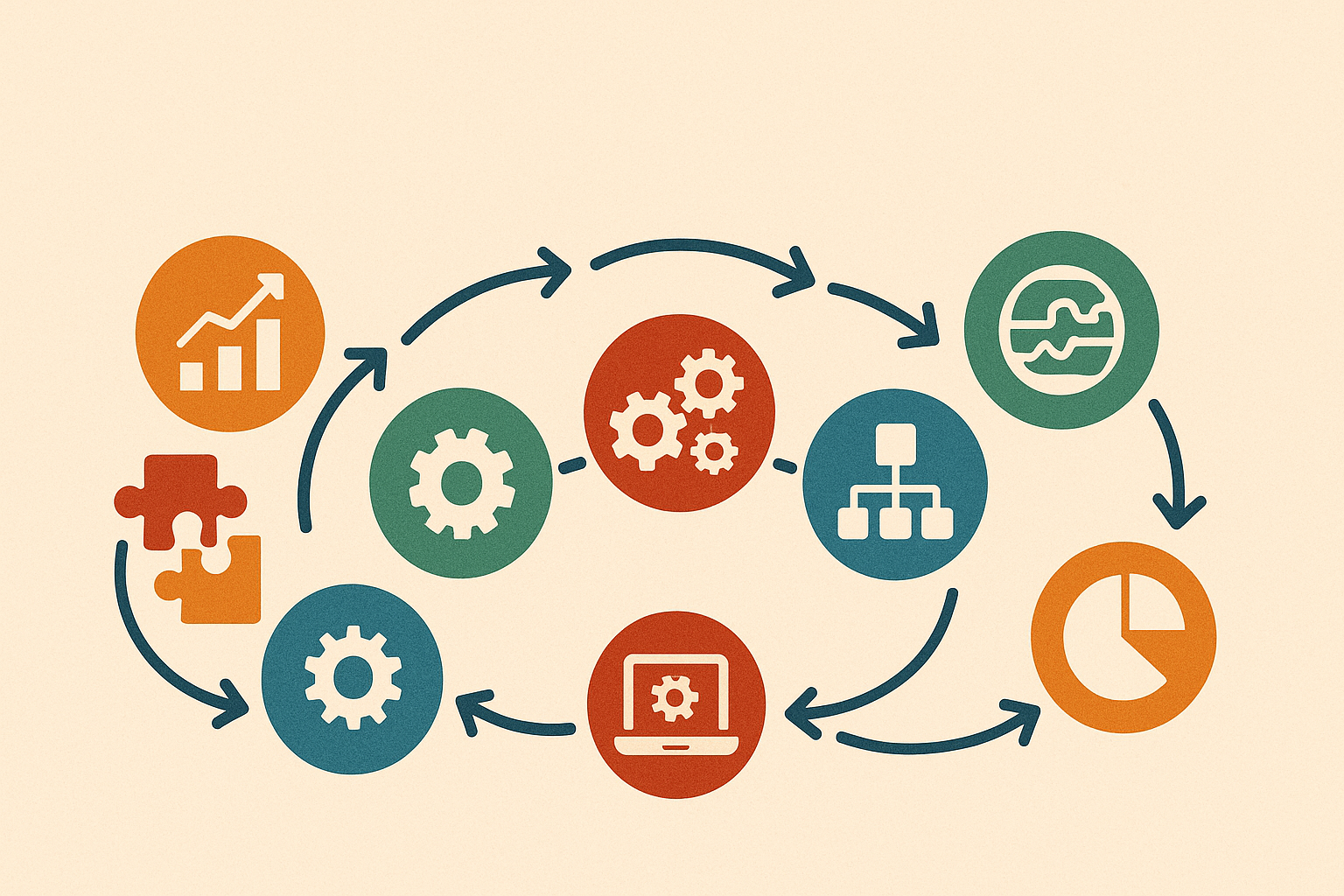The debate between efficiency and effectiveness is futile if we ignore their interdependence. Discussing them in isolation can harm the system we aim to improve. Let's take a systems perspective.
Efficiency is widely understood—doing more with fewer resources. It's a worthy pursuit because failing to improve efficiency wastes resources. Companies should continuously develop knowledge on optimizing resource utilization, applying that knowledge to eliminate waste.
However, effectiveness belongs to the containing system—let's call it the uber system—while efficiency is optimized within the contained system (the unter system). If we improve an unter system's efficiency in a way that benefits the overall uber system, we achieve both efficiency and effectiveness. But if efficiency improvements in the unter system negatively impact the uber system, we become efficient yet ineffective.
For example, an IT department decides to issue only 14-inch laptops to all employees, including developers. Finance sees this as cost-saving—serving the same number of employees with a lower budget. However, reduced productivity across the organization makes the uber system less efficient, but we shall call it less effective because the concept of efficiency is in context of uber sytems. . Conversely, an IT department might incur extra costs, appearing less efficient at its level, but enhancing overall organizational productivity—leading to true effectiveness.
The challenge? There are many. Efficiency gains in an unter system are immediately visible, while effectiveness losses at the uber system level are delayed. By the time these losses become apparent, it's often too late to connect the dots—we unknowingly trade long-term effectiveness for short-term efficiency
A system must survive in the short term and thrive in the long term. The only time we should accept inefficiency for short-term survival is when survival itself is at risk. However, a company that always operates in "survival mode" will eventually collapse—short-term efficient decisions that undermine long-term effectiveness lead to its own demise.
In today's world, great managers must understand their systems—or at the very least, be aware of their uber systems. Ignoring these feedback loops leads to decisions that may seem beneficial at a micro-level but ultimately harm the organization at large. The best leaders optimizes both efficiency and effectiveness in tandem in general , so they get paid money because it takes special knowledge of systems to optimize both symbiotically .
The same concept was expressed by some great folks in terms of "Efficiency is doing the things right, and effectiveness is doing the right things". You can see "doing things right" at your level but it has to contribute to positively to uber level. Because if it feeds to uber level in negative way, it would feedback to unter level negatively. Though it's a different story that one might say, I will not be around then, not my problem. That's a more of a morality question and less of knowledge of systems question thought they are again interdependent.
Join WhatsApp Group for discussion : https://lnkd.in/gu4nqETH
Signup Our Community at https://lnkd.in/gckbeuhd




























